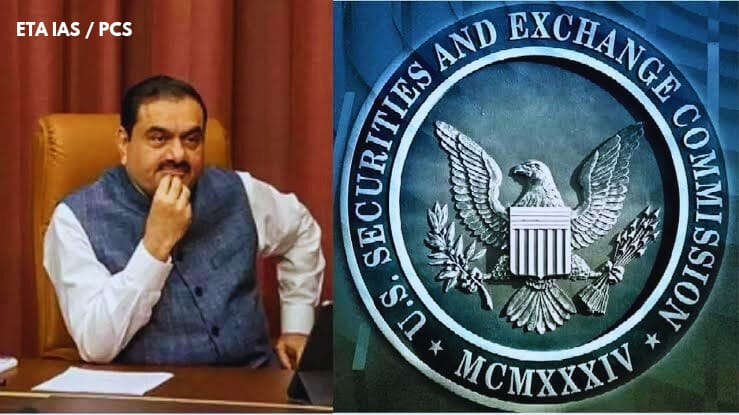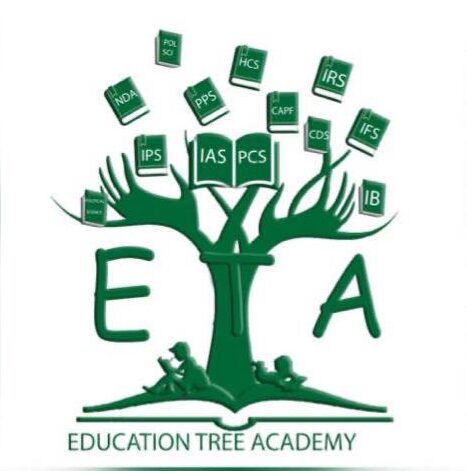WHY IN NEWS?
The U.S. Securities and Exchange Commission (SEC) has requested the support of the Union Law Ministry of India in accordance with the Hague Service Convention to deliver summons to Gautam Adani and his associates in connection with a securities fraud investigation.

The Hague Service Convention
Official Name:
- The full title is the Convention on the Service Abroad of Judicial and Extrajudicial Documents in Civil or Commercial Matters (1965).
Purpose:
- The treaty is designed to standardize the procedures for serving legal documents internationally.
Objective:
- The aim is to simplify and streamline the process of serving legal documents across borders in civil or commercial matters.
Key Aspects of the Hague Service Convention
Establishment and Purpose:
- Established in 1965, the convention aims to standardize the process of serving judicial and extrajudicial documents internationally.
Objective:
- To streamline the service of judicial and extrajudicial documents in civil and commercial cases among countries that have ratified the convention.
- To ensure that defendants in foreign jurisdictions receive timely and effective notice of legal actions.
Central Authority:
- Each participating nation appoints a Central Authority responsible for receiving and managing service requests.
Signatories:
- The convention has been ratified by 84 countries, including India and the United States.
- It is applicable only when both the sending and receiving nations are signatories.
Methods of Transmission:
- Primary Method: Service through the appointed Central Authority.
- Alternative Methods:
- Diplomatic or consular service
- Postal service (where allowed)
- Direct service by judicial officers
- Direct communication between governmental authorities
Service of Process in India
Convention Participation:
- India became a party to the Hague Service Convention on November 23, 2006.
- India explicitly rejects all alternative methods of service outlined in Article 10, including postal service, except for requests made for its own nationals.
Service through Central Authority:
- Service must be conducted solely through the Ministry of Law and Justice, which serves as India’s Central Authority.
- All service requests must be submitted in English or accompanied by an English translation.
Discretion of the Central Authority:
- The Central Authority has the discretion to refuse a service request under Article 13 if it poses a threat to sovereignty or security.
- However, it cannot refuse a service request solely based on claims of exclusive jurisdiction.
Service Duration and Legal Status:
- The typical duration for the service process is between 6 to 8 months.
- The service is regarded as an Indian court summons in accordance with Section 29(c) of the Code of Civil Procedure, 1908.
Judicial Precedents Regarding Alternative Service Methods
Federal Trade Commission v. PCCare247 Inc. (2013) (U.S.):
- The case allowed service in India through Facebook and email.
- It was contended that these methods were not explicitly contested under Article 10 of the Hague Service Convention.
Punjab National Bank (International) Ltd. v. Boris Shipping Ltd. & Ors. (2019) (UK):
- The ruling dismissed the use of alternative service methods.
- It emphasized that service must adhere to India’s prescribed procedures as outlined in the Hague Service Convention.
Rockefeller Technology Investments v. Changzhou SinoType Technology Company (2020) (U.S.):
- The court ruled that service methods agreed upon in a contract can take precedence over a state’s objections under Article 10 of the Hague Service Convention.
Default Judgments Under the Convention
A default judgment may be granted under the Convention when a foreign government fails to cooperate in the service of summons to a defendant located within its jurisdiction.
Conditions for a Default Judgment (Article 15):
- The document was transmitted via a method sanctioned by the Convention.
- A minimum of six months has passed without confirmation of service.
- The court concludes that all reasonable efforts have been made to secure proof of service.
India’s Stance on Default Judgments:
- India permits default judgments even in the absence of a service certificate, provided the conditions of Article 15 are satisfied.
Case Example – Duong v. DDG BIM Services LLC (2023) (U.S.):
- In this case, the U.S. court recognized Article 15 as a safeguard.
- It allowed default judgments when India’s Central Authority did not efficiently handle service requests.
